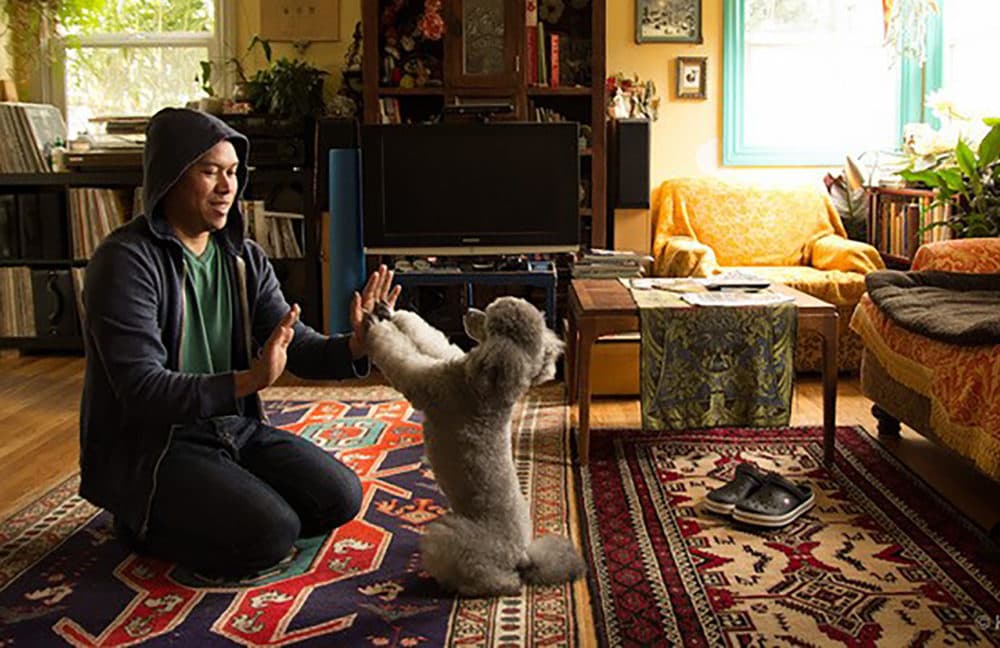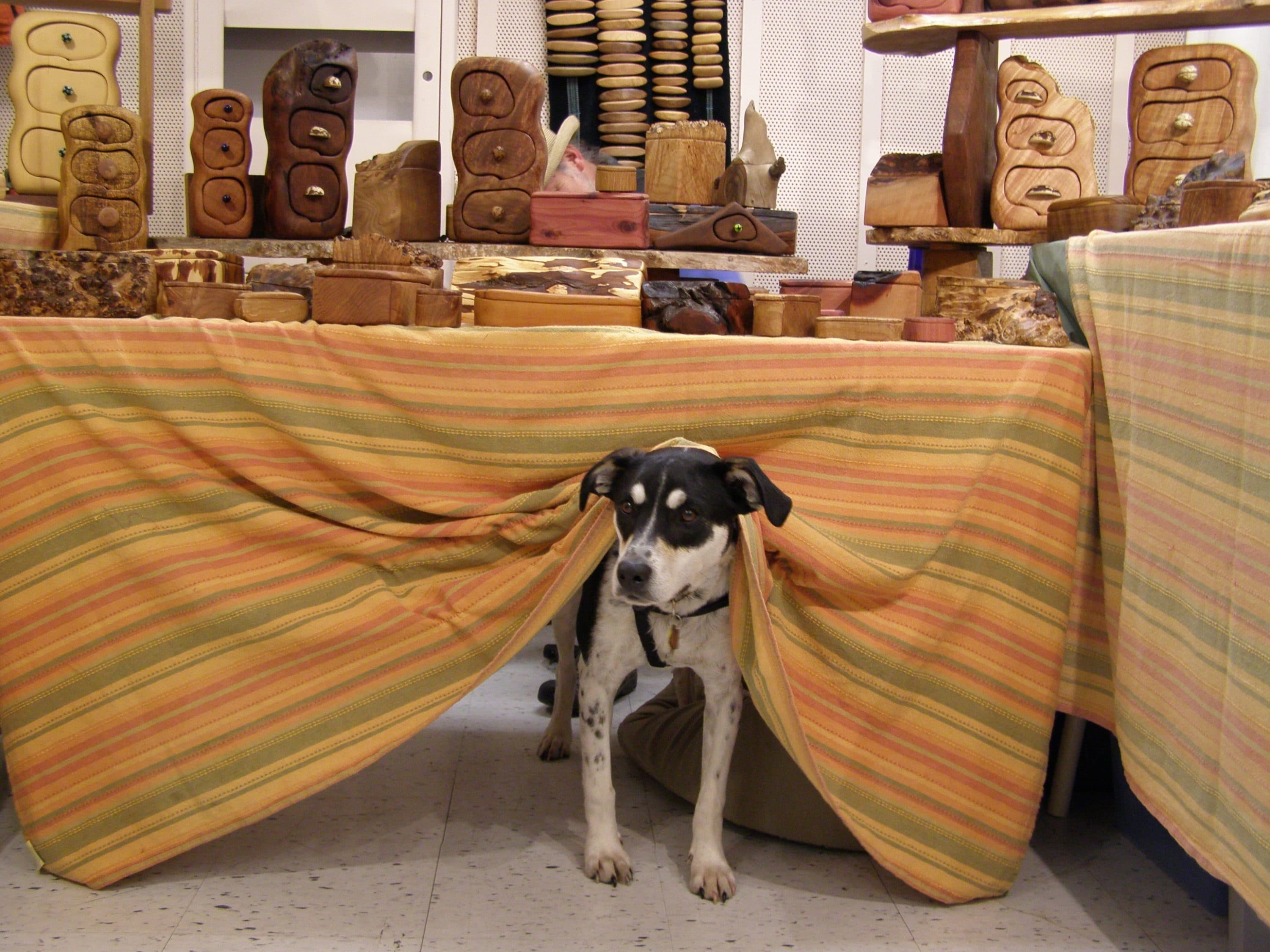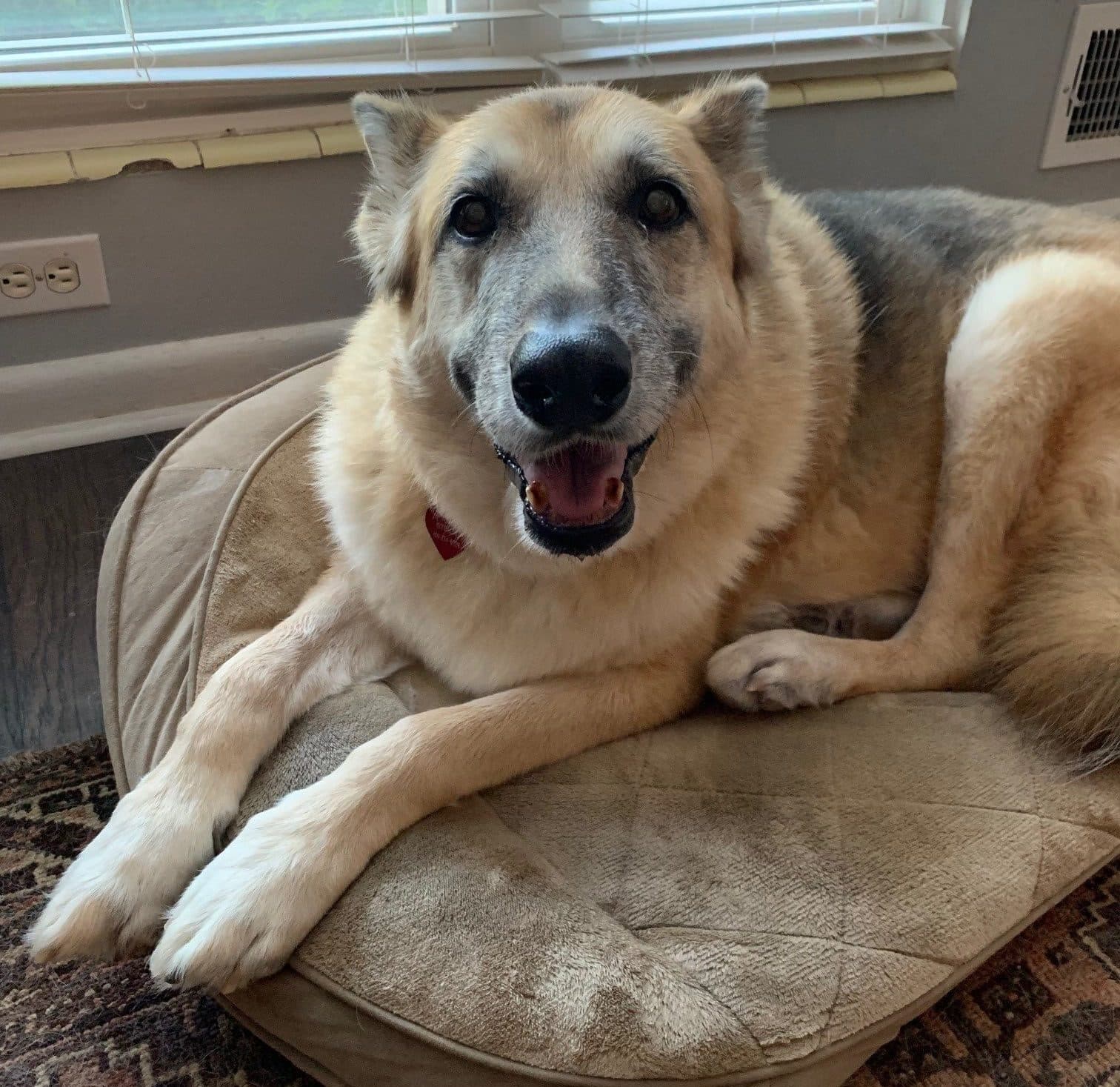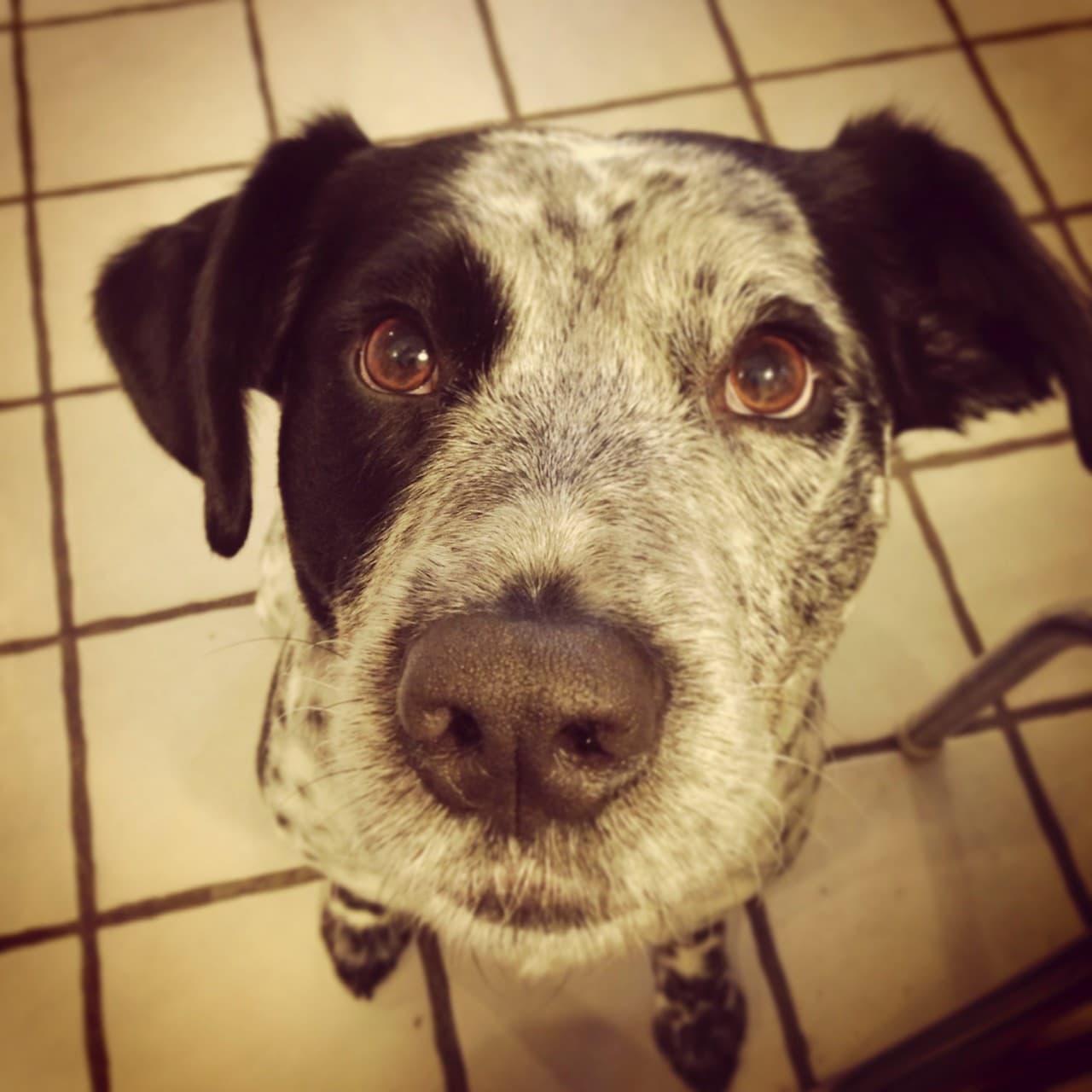Advertisement
'Like losing a person in your family': Owners grieve beloved pets
Resume
Why does the loss of a pet hit many of us so hard?
It’s something our listeners have been thinking about since we aired a segment with the author of a new book about grieving our pets. Dozens wrote to us to share their own stories.
Janis Dolphin recently lost her dog Felix and cat Graham within a month of each other. Both of them were 16 years old.
"It is very much for me like losing a person in your family,” Dolphin says. “There's a long period of time where every time you get in the car, you look over at the passenger's seat — I'm going to cry — and he's not there. Or you know, the cat's not trying to jump on my lap and walk on the laptop. So that part just doesn't get better.”
Dolphin lives on a small dairy goat farm along the Northern California coast. She worked as a professional dog trainer for over 20 years, mostly with bull terriers. But Felix was a little poodle.
“He was a lot like me,” Dolphin says. “I'm kind of a Type A who works real hard all the time. I'm busy a lot. I live in my head a lot. He was a lot the same way."

Both Felix and Graham would tag along after her while she worked on the farm. Graham kept rabbits out of the garden and mice out of the barn.
"He was definitely my working partner,” Dolphin says. “He was smart. He was almost feral. Did not really relate to other people, but was my buddy and my partner on the farm."
Having a pet as a working companion is something Ellie Efforts understands well.
She and her husband Ernie are woodworkers from southern Oregon. They build urns for pets and humans and present them at art fairs across the West Coast.
Their rescue dog of 13 years, Myrtle Jo, went to the fairs with them and greeted the customers.

“She would come out, stick her head out from underneath the tablecloth, and people would stop just to see this dog who was peeking out at them,” Efforts says. “And she had white eyebrows, so she just always had this interesting look about her.”
Early one morning, they were setting up at the Whole Earth Festival in Davis, California, when a man sat next to them and started playing the didgeridoo, the long wind instrument.
"And Myrtle kind of stood back for a while and was kind of watching them,” Efforts says. “And then she went and stood. She sat down probably 10 feet in front of him with one ear up like the RCA dog and just listened to him. And they stayed that way for probably 40 minutes."
Myrtle Jo was euthanized about a year ago after her back legs gave out. Now Efforts keeps a picture of her in their booth at art festivals.
"I don't think we're good at talking about grief,” she says. “But I think animals might be a good way to cross that barrier of opening up. And it's a beautiful way to share our common humanity."
Talking about her grief with other dog owners has helped Marianne Schneider too. She lost her German shepherd, Storm, just two weeks ago.
Storm was a fixture at the dog park near Schneider’s home in Decatur, Georgia.

“When she went there the first time, she just couldn't believe how many dogs there were there,” Schneider says. “And she would go to all the dogs and try to play with them. And the first time she experienced a dog who didn't want to play with her and didn't like her and was aggressive towards her, she was shocked. I mean, completely shocked. She had no idea what was going on.”
It makes sense why Storm loved being around other dogs. Before Marianne rescued her three and a half years ago, Storm had spent most of her life in a backyard alone.
The sweet shepherd was older though, and just a year after Schneider got her, Storm tore her ACL while playing with some puppies at the park. Schneider knew she would have to put Storm down when she lost her ability to walk — and Storm was too old to have the injury repaired.
“Other than her immobility, she was a really healthy dog. And she was alert. She was interested. She was still eating,” Schneider says. “So that was the hardest part for me, I think, was knowing that I had to make that decision for her when she was looking at me like, what's going on?”
Eva Silverman is still coping with the loss of her dog, Pebbles.
She and her former partner adopted Pebbles almost 16 years ago. After their relationship ended, they co-parented, moving Pebbles across the San Francisco Bay every two weeks.
"I can't stress enough how incredibly adaptable she was in terms of wherever we would go, she would feel at home,” Silverman says.

Pebbles loved popcorn and especially Silverman’s 1-year-old niece, Hazel.
Pebbles was also a cancer survivor, having gone through surgery and radiation when she was 9 years old. About three months ago, the cancer came back, this time in the form of an adrenal tumor.
Silverman says she and her former partner were focused on making Pebbles as comfortable as she could be in her final days. Right before Pebbles died, they took her for one last dip in the waters of the bay.
“It's brutal, and, like other loss, it gets different. It changes, you know?” Silverman says. “That's kind of what life is, and that is what grieving is and that is what living with loss is as well. And they're so woven into the fabric of your every moment.”
Samantha Raphelson produced and edited this interview for broadcast with Gabe Bullard. Raphelson adapted it for the web.
This segment aired on September 2, 2022.

